When you’re a high-achiever, there’s always a temptation to do more; be more; try harder; push further. But do those things really help us to become more successful, or do they actually limit our progress and impact our health?
As you’ve probably deduced from my tone, it is most decidedly the latter.

That’s not to say we shouldn’t push ourselves; shouldn’t aim; shouldn’t dream. But there has to be a balance; otherwise, what’s it all for?
A shift in perspective
Before I became a workplace productivity and performance coach, I had a high-flying career in the corporate world. But caught in a circle of achievement, my health – and mental wellbeing – began to seriously suffer. My body was showing tell-tale signs of burnout; I developed sleeping problems, fatigue, and irritable bowel syndrome. Before long, anxiety set in – but I kept going. Working harder for longer hours; pushing on; ignoring the signs.
My sleeping problems and insomnia became chronic. Stress-related neck and back pain became excruciating, and eventually required surgery. I suffered with panic attacks, stopped eating properly,
and struggled to get out of bed in the mornings. I avoided meetings at work as much as possible, trying to encourage phone calls so others wouldn’t see the state I was in. Sound familiar?
The harder I worked, the further I moved from the life I actually wanted; then, when I developed sleep apnoea from chronic stress, I knew that enough was enough.
I sought help, and shifted my focus. Instead of pushing myself beyond the limits of human endurance (which, let’s be honest, is something many of us leaders are guilty of), I set strict healthier and more fun boundaries between time to work, and time to live.
I dropped to a four-day working week, became far more productive, and started enjoying myself – for the first time in years.
The high cost of high achievement
In a world where we’re told we can have it all, if we work hard enough, it’s difficult to know where to stop. You might feel like taking your foot off the gas is a sign of laziness or lack of ambition, but that couldn’t be further from the truth.
If you really want to perform at your peak and see success at work, you absolutely have to take good care of yourself; fill your tank; give yourself the fuel your body (and mind) is crying out for. Because when you don’t, the impact is far-reaching.
People suffering from burnout (which comes around remarkably quickly when you’re chronically stressed) find it hard to function in their day-to-day lives; so forget smashing it – when you get to that point, you’re struggling to survive.
Some of the tell-tale signs of burnout include:
- Poor performance
- Reduced creativity
- Trouble concentrating
- Difficulty sleeping
- Changes in mood
- Exhaustion
- Cynicism
- Frustration
- Headaches
- Stomach ache
Not conducive to high performance, are they?
Of course, one of the most concerning effects of burnout (or chronic stress) is the impact it can have on your mental health – increasing your chances of developing depression, and heightening anxiety at every turn. And this doesn’t just affect your life at work.
Many of the clients I’ve coached over the past few years talk about the impact of stress on their home lives; damaging relationships, ending marriages and putting a saddening strain on family life.
But burnout doesn’t have to be permanent.
Making changes to how you approach work – as well as practicing self-care in the form of diet, exercise and better sleep – can significantly alleviate feelings of stress. Starting your day with five minutes of mindfulness can also be incredibly helpful for setting your intentions for the day ahead; as can journaling – allowing you to prioritise your most important tasks, and take the pressure off everything else.
For me, one of the most effective guards against burnout has been my perfect week planner. It’s something I developed back when I was struggling, and I’ve used it to help hundreds of leaders, teams and organisations over the years. Ultimately, it’s about structure, and taking back control of your day. Split into days and hours, the planner works by giving you an objective overview of your week, and allows you to factor in down time, family time, and anything else that’s important to your happiness and sense of wellbeing.
And that’s what I’m really trying to achieve through all of my work: helping other people to find success, without compromising their happiness, health, or overall wellbeing. Because when we sacrifice it all, we create a void that’s far too big to be filled by work alone.
Supporting others
Through my own burnout recovery, I’ve learnt how common work-related stress is, and just how dangerous. After reaching rock bottom, I took to the stage and used my story to help people all around the world to recover from burnout – or ideally, to avoid it altogether whilst actually living a happier life and achieving more success at work.
I evolved my work as an expert in business growth strategy and productivity and now, through my Life-Work Success App, 1:1 executive coaching, transformation courses, and virtual team workshops, I make it easy for leaders and their teams to achieve a far healthier life-work balance, and even greater success.
Even the very best need a helping hand to fulfil their potential in life and work. Much like your favourite sports superstars. If you’d like to become a life-work superstar, find out more about avoiding burnout, reshaping your life-work balance, and becoming more successful without putting in extra hours, drop me an email to arrange a chat. What’s the worst that could happen from a 1:1 chat?





